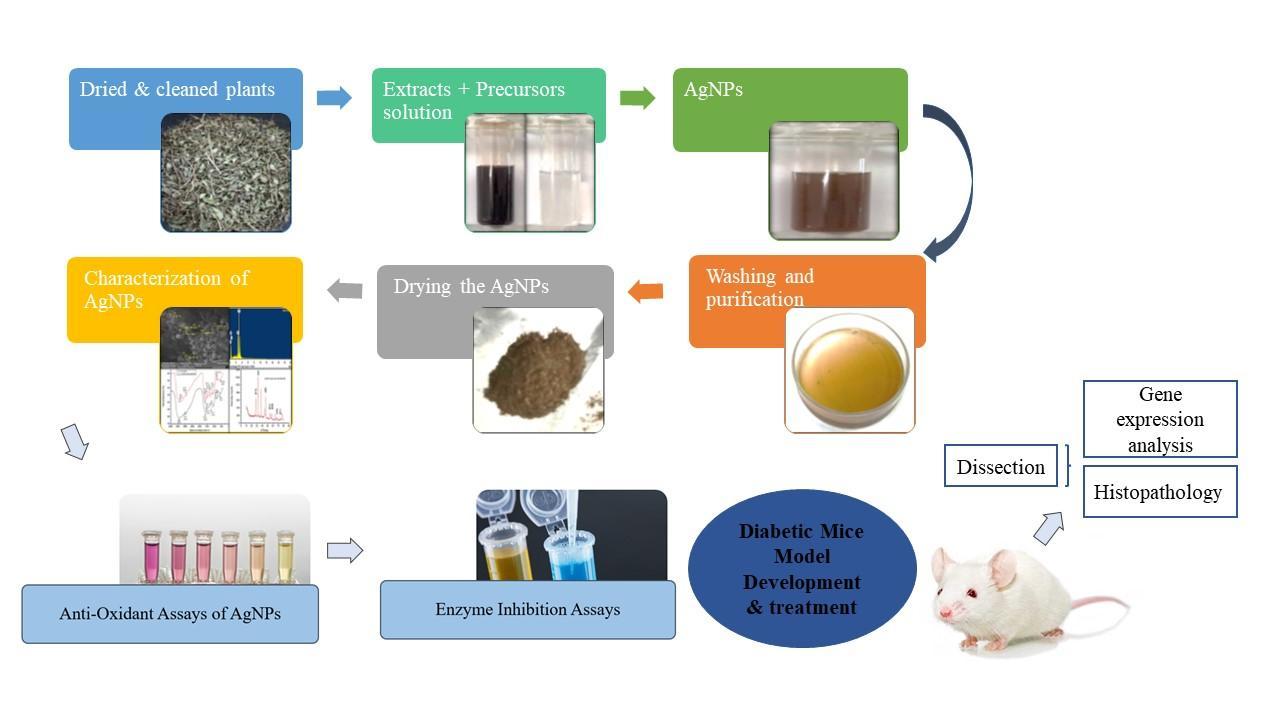A review on biogenic silver nanoparticles as efficient and effective antidiabetic agents
DOI:
https://doi.org/10.31989/ffs.v3i7.1119Abstract
The frontiers of nanomedicine are consistently being challenged by the gradually expanding knowledge of the properties of nanoparticles. Toward this end, biogenic synthesis of silver nanoparticles utilizing natural compounds in plants as reducing and capping agents grabbed considerable attention, in lieu of synthetic hazardous physical and chemical techniques. Green synthesis of silver nanoparticles (AgNPs) has proven safe and effective in treating type 2 diabetes mellitus. Currently, biogenic silver nanoparticles have gained importance as safe and efficient antiglycation agents.
Therapeutic strategies by employing nanomedicines from natural sources have been initiated to end the limitations of currently available medications for the treatment of various disorders, including diabetes, Alzheimer’s, cancer, and hepatitis. This article highlights the medicinal efficacy of silver nanoparticles synthesized from different plant extracts for their antidiabetic potential characterized through various in vivo and in vitro assays and unravels their unique properties. This article also focuses on the signaling pathways linked to type II diabetes and the demand for nanomedicine and greener pathways for future pharmacological industries.

Keywords: Biogenic silver nanoparticles, antioxidant, Type 2 Diabetes Mellitus (T2DM), α-glucosidase assay, α-amylase assay
Downloads
Published
Issue
Section
License
Authors retain the copyright of their articles and grant the Functional Food Center (FFC) and its journals the right of first publication under the terms of the Creative Commons Attribution 4.0 International License.
This license permits unrestricted use, distribution, and reproduction in any medium, including commercial use, provided the original author(s) and source are properly credited. Authors may post and share their published work freely, provided that the original publication in this journal is acknowledged.
By submitting to this journal, authors confirm that their manuscripts are original, not under consideration elsewhere, and that they hold the necessary rights to grant this license. The Functional Food Center encourages open scientific exchange and allows derivative and extended works, provided attribution to the original publication is maintained.